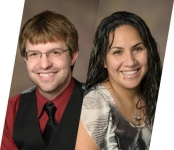Novel Team Approach to Telemedicine Explores New Possibilities in Delivering Care

Since July of 2019, a unique collaborative team approach has been employed to optimize HIV and general infectious diseases telemedicine services delivered to correctional facilities throughout Arizona. The program builds on a program to provide telemedicine services to the Arizona Correctional system since 1998, with infectious diseases services being provided since 2009.
This team in the University of Arizona (UA) Petersen HIV clinics (PHC) includes an infectious diseases physician and a clinical pharmacist along with administrative, scheduling, and technological support. This model was adapted from a process already in place at PHC in Banner University Medical Center (Tucson, AZ) in which a physician, pharmacist, and clinical coordinator all see the patient simultaneously. This model was implemented in direct response to the numerous issues and barriers faced by individuals living with HIV, not only in affording costly antiretroviral HIV medications but in addressing social barriers that are just as likely to contribute to treatment failure. By the conclusion of the brief visits, all issues have been addressed relating to HIV care, including medication usage and acquisition as well as insurance coverage and follow-up plans.
Overseen by UA telemedicine director Ronald S. Weinstein, MD and led by infectious diseases physician Stephen Klotz, MD, the innovative telemedicine program has already seen and delivered care to hundreds of individuals across Arizona. Dr. Klotz worked to redesign a program that would utilize the same clinical support he was accustomed to in his brick and mortar clinics. This collaborative approach would continue to provide not only high-quality care but dramatically increase the efficiency with which patients could be seen through telemedicine visits. In a routine clinic, as many as 20 patients can be seen in a single morning or afternoon. This efficiency is largely due to the collaborative efforts of having a clinical pharmacist present to assist with lab/chart review, as well as a behind the scenes coordinator who collects lab information and prepares it for rapid review while arranging for follow-up visits.
Dr. Klotz’s support staff includes Larry York, PharmD an infectious diseases-trained clinical pharmacist, and Krystal Fimbres, an early intervention coordinator from the PHC scheduling patients, obtaining lab work, and preparing quick reference charts to expedite telemedicine visits. They are joined by Cesar Egurrola, a senior coordinator also from the PHC working administratively behind the scenes and providing additional case management services as needed. Together, the team works to address multiple issues specific to this patient population including assistance in managing individuals planning to be released and needing linkages to care. At present, these complex issues are addressed at multiple facilities and corrections departments including Lewis, Perryville, Tucson, Florence, and the Pima County Adult Detention Center, all conducted from the University of Arizona Telemedicine hub. For patients at facilities in Tucson, Krystal may even travel to and visit patients in anticipation of their release to assist with follow-up visits on the outside.
Prior to the start of the COVID-19 pandemic, telemedicine visits were carried out on site at the UA with assistance provided by Information Technology specialists Michael Holcomb and Peter Yonsetto. One of the unique challenges of telemedicine is the unexpected technological problems on either end of the visit, sometimes taking the form of dropped audio or poor connections leading to framerate drops in the streaming video. Both Mike and Pete respond to these crises and work to resume operations as quickly as possible, rarely delaying appointments by more than 1-2 minutes.
All of the PHC staff working to deliver high-quality HIV care to persons in correctional facilities agree that the atmosphere of the telemedicine clinics is far more relaxed now that the infrastructure and flow have been refined. Limited physical assessments can easily be performed by manipulating the remote camera to focus in on concerning areas where wounds or rashes may be present, all done with the click of a mouse. Lab reports are present and can easily be reviewed by the experienced staff while conversing with the patient. Should an unexpected issue arise, support personnel are present who will likely have the answer.
The University of Arizona’s telemedicine clinics continue to serve as an example of what can be accomplished in providing healthcare through innovative means, particularly in the current COVID-19 era. For those willing to experience a unique way of seeing patients, these specialized visits demonstrate a future in which high-quality patient care need not be compromised despite distance and disposition. It is hoped that the great successes of Dr. Klotz’s team will pave the way for other specialties to consider this next step in delivering excellent and efficient patient care across Arizona.
